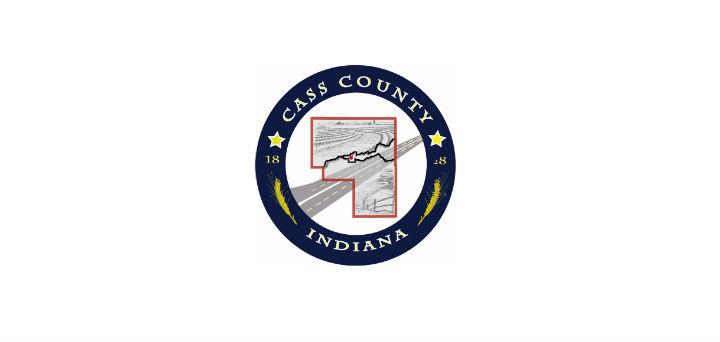Last Updated on December 4, 2019 by cassnetwork
Guest column by State Health Commissioner Kris Box, M.D., FACOG
 Having a baby is usually one of the happiest times in life for a woman and her family. I have been blessed to share this joyous occasion thousands of times in my career as an obstetrician. But in the State of Indiana, hundreds of babies die before turning one, and many women die of pregnancy-related complications while pregnant or in that first year thereafter.
Having a baby is usually one of the happiest times in life for a woman and her family. I have been blessed to share this joyous occasion thousands of times in my career as an obstetrician. But in the State of Indiana, hundreds of babies die before turning one, and many women die of pregnancy-related complications while pregnant or in that first year thereafter.
As an obstetrician/gynecologist, I have walked through situations of loss with my patients, and nothing is more heartbreaking. The opportunity to impact both infant and maternal mortality on a statewide scale was a key factor in my decision to become state health commissioner in 2017. I have visited all 92 counties and met with stakeholders from the health, faith, community and business realms. As daunting as the numbers are, I am more convinced than ever that by working together, we can help more Indiana babies and moms thrive.
We must first understand the challenges before us. Like infant mortality, maternal mortality in our state and across the country disproportionately impacts minority populations. In Indiana, women of color are much more likely to suffer a pregnancy-related death than white women. As with infant mortality, the numbers are alarming, but they don’t answer the critical question of “Why?” To do that, and to develop strategies that will prevent future maternal deaths, we are digging deeper.
Through collaborations across state agencies and with our local partners in your community, and legislation accomplished during the past several years, Indiana is now well positioned to address our poor infant and maternal mortality rates.
The changes we are putting in place today will be measured for years to come and impact generations of Hoosiers. We are committed to helping families who all want the best for their children. The overwhelming number of volunteers engaged with our efforts shows the true heart and soul being put into this work.
The work is inspiring because of the success stories from our communities.
In Vanderburgh County in 2018, a woman who had struggled with homelessness and drug use delivered twins. Her babies tested positive for THC, the primary ingredient in marijuana, at birth. The family was referred to the Department of Child Services, which referred them to the county’s Pre to 3 program, which is funded with a grant from the Indiana State Department of Health to address infant mortality.
Today, the family has housing, the father has a job and the mother has gone back to school to become a nurse. They are active, engaged parents, and their 18-month-old twins are thriving.
We often hear stories like these – of new moms who have improved their health thanks to resources in their community or have overcome substance use disorder and now counsel others – and celebrate as they forge a healthy path forward for themselves and their children.
We are working tirelessly to create more of these stories. But we aren’t doing it alone.
The Indiana Perinatal Quality Improvement Collaborative has been instrumental in the development and implementation of many of the initiatives to address maternal and infant health. More than 400 professional volunteers are involved in this joint collaboration between the Indiana Hospital Association and the state health department.
Expectant mothers at two-thirds of the Indiana hospitals where babies are delivered are now verbally screened for substance use disorder and supported through the Perinatal Substance Use Disorder and Neonatal Task Force as a result of legislation passed in 2019. If a woman is ever likely to get help, it is when she is pregnant. A woman who has a positive screen receives the services, such as medication-assisted treatment and mental health and social services support, needed to improve both her health and that of her baby.
We also are examining every pregnancy-related death in our state. The Maternal Mortality Review Committee, established through legislation in 2018, is for the first time allowing a deeper dive into each pregnancy-related maternal death so we better understand the causes of that death and can implement evidence-based safety bundles to avert future deaths.
Earlier this year, Indiana joined the Alliance for Innovation on Maternal Health, a national safety initiative that will help us implement patient safety bundles to save maternal lives and decrease adverse complications. Already, 69 of our 86 delivering hospitals are participating. We are working with the Indiana Hospital Association to implement our first safety bundle for hemorrhage at all delivering hospitals.
The Indiana State Department of Health is surveying each delivering hospital to designate the levels of care it is able to provide to pregnant women and newborns. This work, spurred by legislation passed in 2018, is designed to ensure that pregnant women and babies with risk factors deliver and are cared for at hospitals equipped to address those needs. This will allow Indiana to develop perinatal centers that can help support education and training in hospitals caring for less acute patients.
We know that healthy babies start with healthy moms, and that is why I am thrilled that Governor Eric J. Holcomb signed into law House Enrolled Act 1007, which creates a perinatal navigation program.
Starting in 2020, the OB Navigator program will begin in areas of the state at highest risk for infant mortality. Families will be connected with a support person who will walk with them through pregnancy and the first year of the infant’s life, helping them navigate such obstacles as Medicaid eligibility, food insecurity, medical care and even childcare. This person will serve as the family’s trusted advocate and chief encourager, helping to launch the newborn and parents on the trajectory to success.
I am devastated by the loss of moms and babies across our state, but I am optimistic about our path forward. As FSSA Secretary Jen Sullivan, DCS Director Terry Stigdon and I have traveled the state to discuss these critical efforts, we have been overwhelmed by the support and determination of our local communities. This is not easy work, and improving outcomes will take time. Recognizing that we all have a role to play, whether it’s ensuring that our grandchildren are in safe sleep environments or helping a new mom who may be struggling with depression, is the first step.
Whether you are a healthcare provider, have a church ministry or serve your community in other ways, I invite you to join us as we continue this important work. Nothing is more powerful than investing in the health and development of children and families in our communities.






